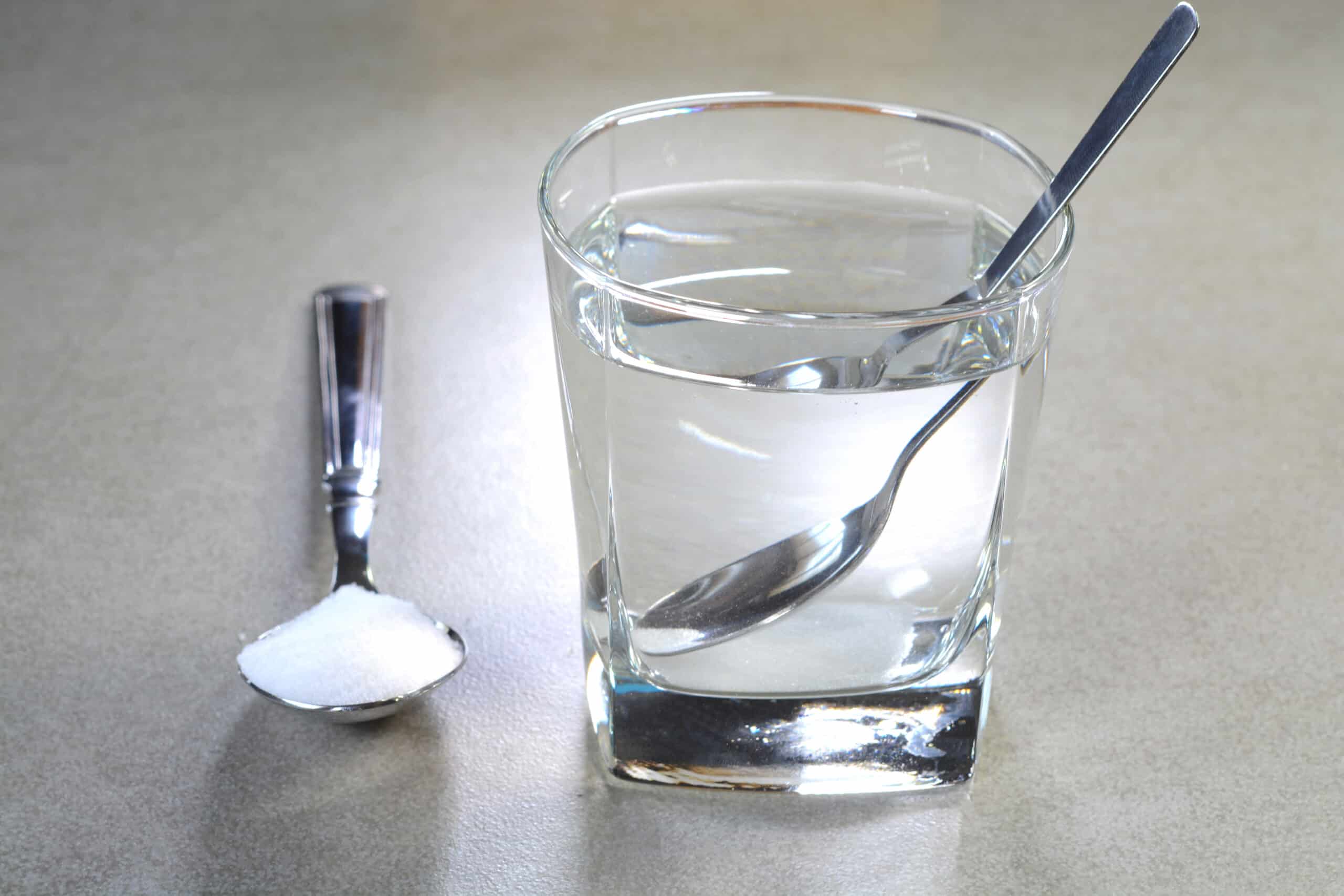Salt water is good for gargling when you have a sore throat but you don’t want to drink it especially when it’s the water in your pool.
When people think about saltwater pools, they often wonder if they can taste the salt, assuming they accidentally drink some while swimming.
The water in a saltwater pool doesn’t taste salty because the salt level is too low for humans to notice. The ideal salt level in your pool is 3200 ppm with an acceptable range of 2700 ppm – 3400 ppm. Humans taste salt at around 3500 ppm and possibly higher for some people so a pool’s salt content is too low to notice.
Plus, a saltwater pool has other chemicals that might mask the taste of the salt even if you could notice it.
Your best bet?
Don’t drink or sip – even accidentally! – your pool water if you can avoid it.
Below we’ll discuss the taste and smell of saltwater pools along with several other aspects to help you understand more about how they differ from other pools.
Does saltwater pool water have a taste?
Saltwater pool water doesn’t have a taste per se. While pool water may have a taste of some kind given the other chemicals it contains at any given time, the salt itself likely won’t be something you notice.
The salt content in your pool should be kept in a range that is generally too low for the human palate to notice.
A balanced salt water pool has a salt content that should be between 2700 ppm and 3400 ppm (parts per million). Keeping salt content in your pool at around 3200 ppm is a good rule of thumb as its closer to the high end of the acceptable range and far enough away from the low end that if the salt level does drop, you should have plenty of time to notice and fix it.
The ocean by way of comparison has salt content of 35,000 ppm which you will definitely taste on both your skin and body and if you happen to drink some, in your mouth.
The smell of salty ocean water is also quite noticeable for the average person due to the high salt content.
Does saltwater pool water have a smell?
A properly balanced saltwater pool doesn’t have a smell per se. The water shouldn’t smell or taste much like anything. It’s possible the water might have a taste to it due to other chemicals but again, your job is to swim in the water, not drink it.
But there is no smell that should emanate from pool water. The classic chlorine smell is actually something else and you want to avoid that.
One of the great benefits of saltwater pools is that the water is easier on your eyes, hair, skin and clothes than regularly chlorinated water. You will leave the pool without any chlorine smell on your body or clothing.
Can you add salt to any pool to produce chlorine?
One of the most popular pages on this website is called Can I Add Salt To My Pool Without A Saltwater System?
The answer is no, you can’t. The salt by itself won’t do anything tangible. Salt on its own in pool water does nothing.
A salt chlorinator uses a process called electrolysis to convert dissolved salt to chlorine. You need the chlorinator along with the required salt content to produce chlorine to sanitize the pool.
A regularly chlorinated pool on the other hand requires a pool owner to manually add chemical chlorine that they purchased.
Why doesn’t the ocean need chlorine if it has salt in it?
Salt on its own does not cleanse or sanitize water in any way. A static body of water like your pool needs a sanitizing agent such as chlorine to keep the water clean and clear while also killing off bacteria.
Depending on what ocean you’re swimming in, it might be somewhat clean or crystal clear to look at. Natural bodies of water like this have other considerations that your pool doesn’t. Oceans have to deal with man made pollutants such as fuel and chemicals as well as the waste from the living organisms like fish that live there.
But oceans are complex ecosystems with natural cleansing abilities that take care of this work. Your pool doesn’t have this feature and thus we need to do this work ourselves, typically with chlorine, bromine, ozone or some other method.
Final saltwater pool tips and facts
- Be careful when adding salt to your pool. It’s easier to add salt than to remove it since draining water is the only way to do so.
- You shouldn’t be able to “smell the chlorine” in your salt water pool. If you do, it’s not for a good reason.
- Salt doesn’t evaporate or wear out but it is lost in your saltwater pool over time in a variety of ways. This is why replacing salt every year is something you’ll need to do.
- Salt-generated chlorine doesn’t include one key component that helps to protect chlorine against the damaging rays of the sun: Cyanuric acid or stabilizer. Here’s why it’s important.

